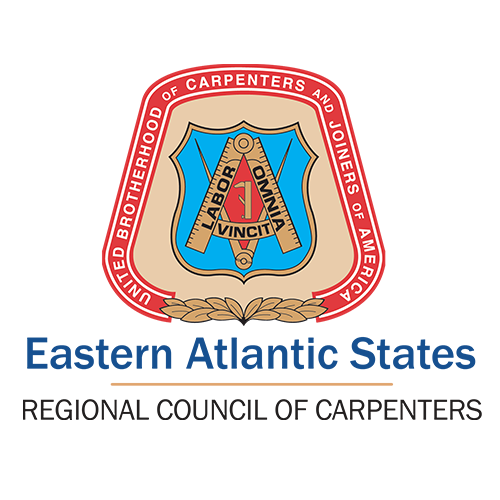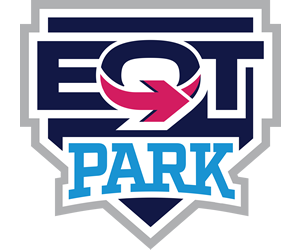Beyond the Ballpark: Shared Spaces, Shared Hearts

Every year the Wild Things look for host families... families who are willing to "adopt" one of the players for the summer.
The program is designed to do several things. It allows the host families to become a part of the Wild Things’ family in a big way, it helps the players become a part of the community and it can allow for life-long relationships to be fostered, among many other things.
A host family is a family or individual who offers accommodations and support to someone for a specific period of time, in this case a Washington Wild Things player for the summer. Another example you may have come across is a host taking in a foreign-exchange student.
Host families provide a stable, clean and healthy environment for the players to live in while they reside in southwestern Pennsylvania. It’s a unique experience to welcome different personalities into your home and support them as they pursue their athletic dreams.
A good-home environment, along with feeling welcomed and supported by the local community can positively contribute to the better on-field performance of the player, overall well-being and, in some cases, can even influence the remainder of the player’s professional career.
Players are on the road for games for half the season and add an element of flexibility and adventure to the experience. It’s rewarding to provide a home away from home for these athletes as they pursue their career. All you need is a spare bedroom and an open mind.
From offering emotional support to fostering a sense of belonging, host families are instrumental in helping athletes thrive both on and off the field and can be a pivotal piece of the team’s family and footprint in the community.
The makeup of the Wild Things’ host-family program is vast: some families/people have done it for just a year… others have been doing it for more than a decade and have seen their experiences go from having players in their homes while they have kids to having players after kids have moved out to colleges or away to begin their lives away from home.
Sometimes it is a challenge to get people involved, for whatever reason(s) may be holding them up, plus it’s a different world than it was when the Wild Things began play in Washington in 2002. The Wild Things are always looking for families to take part in the program and for their current folks in the program to help recruit their friends and people they know to the team!
In our first installment of a two-part series, we’ll look at a family who joined the program in advance of the 2023 season: a family that decided to pull the trigger on the program after deliberation for years.
---
The Caltumo Family: The First Timers
A family of four previously, now five with a new baby on board, the Caltumo family had a spare bedroom and a calling in their heart to be a host family after attending games as season-ticket holders for several years prior to making the jump.
For Whitney and Ron Caltumo, it wasn’t a decision that was taken lightly: it required thoughtful consideration, discussions with their children, two elementary-aged girls and shared understanding of the responsibilities and joys the came along with hosting.
Last offseason, the Wild Things’ front office, led by Vice President of Baseball Operations Kyle Dawson, held an informal get together for current and prospective host families in the clubhouse. Whitney and Ron, as well as Ralph Harlan, a new host in 2023, attended the meeting along with several families who have been involved in the program over the past several years.
It was there, Whitney said, that gave her and her husband the assurance that they could do it and the time was right. She said they felt like Kyle and the Wild Things’ staff gave them a safety blanket: if things weren’t working out, the players could be removed immediately.
The meeting allowed families to hear what other host families do. There are no requirements handed down by the team other than a bedroom, laundry and bathroom facilities for the player to use. Some families/individuals provide food, some have outdoor areas and things like pools and hot tubs that players can use… etc. Some families have kids… others don’t. Everyone and their experiences are different, and the meeting assured the Caltumos that that was okay.
“The important thing is that everybody was on board with it.”
It was all but the conventional first season for the Caltumos as a host family. Once they decided to officially become a host family, they began to prepare their home by cleaning out the spare bedroom. They agreed that “everyone [would] let each other know how they were feeling throughout the process.”
“[We just wanted to see] what happened and that’s what we did. It was a great experience.”
The couple introduced each player to their daughters, ensuring everyone was comfortable with the arrangement. Each player called beforehand to discuss household routines and to be briefed on what to expect: including living with the two girls and three dogs plus allergy and dietary restrictions, rules such as no smoking, drugs, firearms, and more and other things.
They offered to provide groceries and meals with the option for the players to eat with them or independently, emphasizing the importance of cleaning up after yourself. These rules also applied to the girls. For them, it was about fostering a sense of belonging and acceptance, not just providing a place for the player to stay.
The first of three players the Caltumos hosted was Turner Hill. That experience was quite the first one to have… an unconventional one, but in a good way.
Whitney said hosting three players (Hill, Ray Pacella and Caleb McNeely) was special but also difficult, especially emotionally.
“Turner [especially], since he was the first one. The girls… all of us got very attached to him.”
“The girls and Turner would play video games together or they would make friendship bracelets on the porch,” Caltumo remembered. “Turner would play card games with us and play Just Dance with the girls. [All of our players] ate dinner when we’re here and they just become a part of your family, so when they leave it’s like you’re not ready for them to go because it’s so quick.”
Turner’s contract was purchased by the San Francisco Giants organization mere days before the regular season started. The Caltumos received a call from Dawson when the news was broke to the team of Turner’s next-level opportunity.
“That was an interesting phone call to have to make: it was the first one I’ve made about something like that,” said Dawson. “It was my first season really handling the program, so the calls I was dreading were those to tell a family their player was released, and they’d be leaving for that reason so that made this one more fun, but tough at the same time.”
Dawson continued, “Knowing their process to get involved and seeing how close they had gotten with Turner, I knew it was going to break their hearts a bit… but for a very good reason.”
“[Turner] lives and breathes baseball and on top of that he was a fantastic person,” said Caltumo. “We had a conversation the night before where he was really hard on himself. He said ‘I might have to go use my college degree.’”
Seeing the disappointment, Whitney said she told him to take a deep breath and said, “you’re going to be fine.” The next day the signing was announced.
Turner gave Whitney a big hug and waited for everyone in the family to come home so he could say goodbye. She said the girls expressed their mixed emotions: they were happy for Turner’s achievement while also sad about his early departure.
“We didn’t do anything for him. He lived in our house,” she said, bewildered. “Just to see him go do what he wanted to do was amazing. He was the first one and that experience will hopefully be there forever for [him and us].”
An important way Whitney’s family found to grow a connection with their player was to incorporate them into what they were doing: invite them to where they were going and not exclude them from anything the family was doing.
For instance, after a lively family game night, Ron, Whitney’s husband, interrupted the fun to take everyone to a local favorite spot, Sarris. In that moment, it struck him that their guest wasn’t from town and wanted to share a local experience with them.
A perk host families receive is full-season tickets, should they choose to come more often. Whitney said they came to way more games this past season.
“You get to go watch your guys play and when you’re there they acknowledge you,” she said, remembering times other players like Andrew Czech would warmly greet them and show appreciation for their role as a host family and interact with their daughters. “We get to be a bigger part of the team. Hosting a player connects you with more than the player you’re hosting.”
“You’re welcoming someone into your home and they’re coming into someone else's home,” she said. “Some are from a different country, missing family, foods, culture. It’s a learning curve for everybody.”
On advice for those who may be considering joining the program, Caltumo added the following.
“It’s your house, as much of a good experience we had and as fun as it is. It’s still your home and these guys, they need to respect that,” said Caltumo. “Don’t feel bad about setting those standards. They’re away from home too and it’s a different experience for them and for you.”
“I would encourage people with kids,” she said, even knowing sometimes you don’t know the person coming into the home. “The way I thought about it was, I have a husband who’s never ever going to let anything happen. But two these guys have everything to lose. They’re living their dream and they’re not going to do something to screw it up.”
Referring to her girls she said, “It is an experience that those kids are never going to forget. They had a Washington Wild Thing live with them. They’re like local celebrities. Not everybody gets to say that.”












































































































